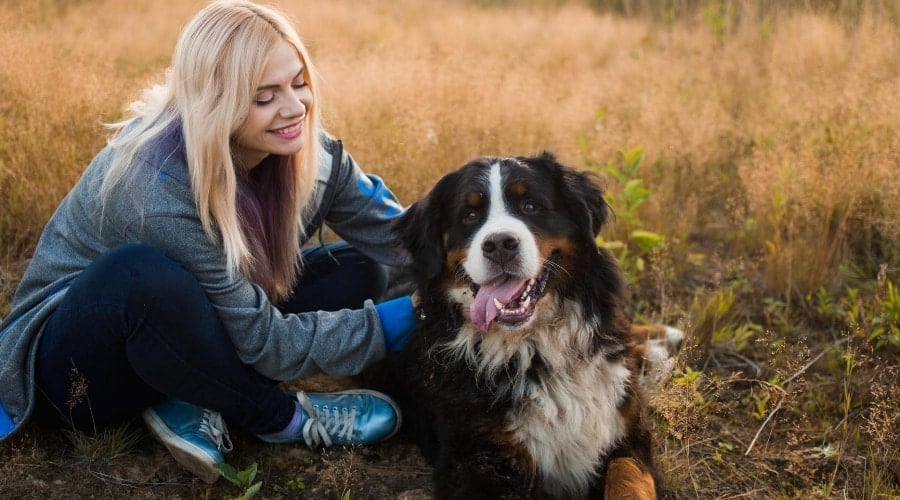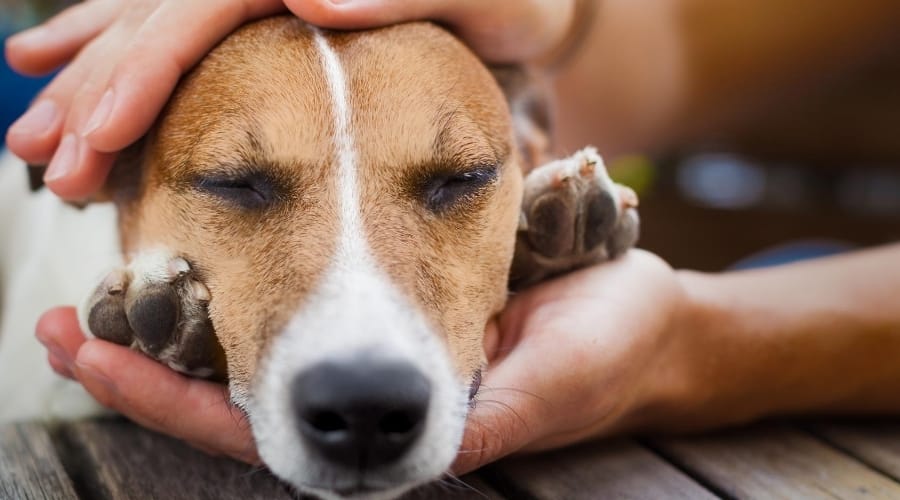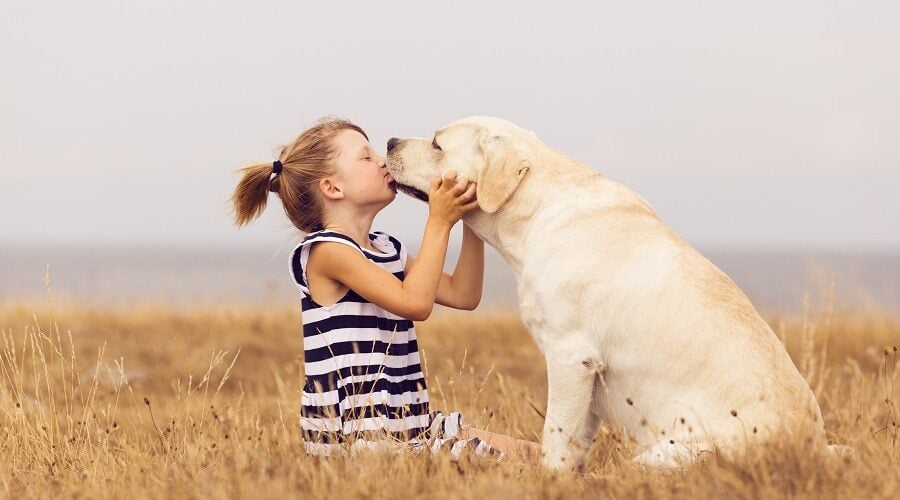Are you ready to own a dog? Most people know that owning a dog can be an enriching experience. A dog is a loyal, loving companion. Walking your dog is excellent exercise, and you’ll meet new friends in your local dog-owning community too.
But being a dog owner is not just a walk in the park for everyone. There are a few crucial things you should consider before you rush out and buy a puppy or offer a home to a dog from a shelter. Dogs carry plenty of costs with them, and some breeds can be downright stubborn to train.
In this article, we pose the critical questions that you must ask yourself (and others in your household) that will help you to see if you are ready to own a dog. Also, we take a look at the best dog breeds for newbie owners and the challenging pups that novices should avoid.
Are You Ready To Own a Dog?

So, here are some essential questions you must ask yourself that will give you a clear indication of whether or not you’re ready to become a dog owner.
Can you afford to keep a dog?
Dog ownership is not cheap. Once you’ve purchased the pooch, you’ll have ongoing expenses such as vet fees, food, insurance, and umpteen other essentials to pay for too. Remember that most dog breeds have a life expectancy of up to 15 years.
The cost of keeping a dog can run into hundreds of dollars every month. Vet bills from pups that do stupid things like eating sticks can cost into the thousands. If you don’t have that amount of cash to spare, think again.
To see how much dog ownership costs, check out our article at this link.
What will your circumstances be in the future?
Most dog breeds can live for up to 15 years, and some crossbreeds even exceed this.
Be sure that you’ll be around for the long haul. It’s not fair to take on a dog, only to pass him onto a shelter if your future circumstances change and there’s no longer a place for your pet in your life.
Is your home suitable?
Think about where you live. If you rent a place, does the landlord allow dogs? If you live in a tiny apartment with no outside space, where will you exercise your dog or take him for bathroom breaks?
Also, some condominiums place a restriction on dog size, usually by weight. Before you bring home a dog, check what’s allowed and what’s not. If you live in an apartment complex, will your neighbors object to a dog that barks during the day when you go out?
Are you out at work for all or most of the day?
Most dogs don’t like to be left home alone for long periods. Dogs don’t have the same perception of time that we do, and leaving a puppy by himself for hours will cause your pet great distress. Separation anxiety can lead to issues, including incessant barking, chewing and other destructive behaviors, messing in the house, and even self-harm.
If you’re not prepared to pay for your furry friend to spend the day with a pet sitter service or lodge him with a friend while you’re out at work, don’t get a dog.
Will you get up early to exercise your dog?
Most dogs are up and about at the crack of dawn, wanting to go outside to relieve themselves and burn off energy. So, you can forget about your weekend lie-ins.
You must be prepared to get up early to take your dog out for a walk or to the dog park for some exercise. And you’ll need to do this twice a day, whatever the weather. In summer and winter, you may have to alter your routine for your dog’s safety and comfort too.
Of course, you could use a dog-walking service to give your pup an afternoon visit to the dog park while you’re out at work. That way, a short evening stroll should suffice for most breeds. Can you afford around $50 a week for a professional dog walking service?
How busy is your lifestyle?
Like children, dogs need you to devote a lot of time and energy to their care. If you already have a busy lifestyle, when will you fit in jobs such as grooming, training, socializing, and exercising your dog?
One day, your dog will die. How will you cope?
When you give a forever home to a dog, you must realize that one day, your beloved canine companion will leave you. The chances are that you will be the one to make the heartrending decision to have your pet put to sleep when old age and health problems finally catch up with him. Are you emotionally and mentally strong enough to do that?
Does everyone in your household want a dog?
Before you go any further with your dream of dog-ownership, sit down and talk the idea through with your whole family. Is your spouse okay with sharing his or her home with a drooling, barking, demanding creature, especially if your dog’s care is likely to be shared?
What about other pets? How will Tibbles the cat feel about sharing her domain with Fido? Have a chat with your vet about how best to introduce a dog to your other pets.
Does anyone in your home have a dog allergy?
Although you can buy breeds that are minimal shedders, someone with a severe dog allergy will not thank you for bringing a walking health hazard into their home.
Seriously, pet allergies can cause chronic health problems for allergy sufferers. Do you want to inflict that misery on one of your kids or your spouse?
Are your kids desperate for a puppy?
Most parents have read their kids’ letters to Santa, asking for a puppy. Yes, puppies are undoubtedly cute, adorable, fun, entertaining, and sweet. But puppies can very quickly grow from tiny, fluffy bundles of joy into gangly, rambunctious juvenile homewreckers.
Remember; puppies do grow into dogs. So, be absolutely sure that what you want ultimately is a dog.
Are you prepared to look after your kids’ dog?
So, you finally caved in and bought your kids a puppy. Who do you think is going to do most of the work? And, once the novelty wears off, and the puppy grows into an adult dog, are you prepared to provide the majority of the care your “children’s” dog needs?
Remember, that tiny puppy could live for 15 years or more, long after your kids have flown the nest. That means 15 years of deshedding with a brush or tool, and grinding nails for your dog.
If you have answered in the negative to ANY of the above questions, you should think again before you get a dog. If you’ve answered “yes” to every question, read on…
More Questions Before You Adopt

So, you’re ready to take on dog ownership. That’s great news! But don’t rush out and grab the first mutt you see! There are some essential things to think about before you go dog hunting.
Boy or Girl?
Do you want a girl or a boy dog? There are pros and cons to both. You should be well prepared for whatever decision you make, but there are definitely distinct differences between male and female canines.
Entire male dogs can be dominant and aggressive towards people and other pets, and a Fido who’s not been fixed won’t be permitted in off-leash dog parks. Also, boy dogs tend to be larger than girl dogs when they’re fully grown, which could be an issue if you have limited space at your disposal.
A female dog in heat can become hormonal and suffer from false pregnancies. A girl dog will make a mess on your carpets when she’s in season, and she won’t be allowed in your local dog park either. Also, you may find yourself and your poor pup pursued by a gaggle of amorous boy dogs every time you set foot outside your home.
Both boy and girl pups should be de-sexed to avoid the above issues and to prevent unwanted puppies from coming along in the event of an accidental liaison.
Puppy Or Adult?
Do you have your heart set on a puppy, or would you prefer to offer a home to an adult dog from a rescue center? Again, there are pros and cons to both options.
Puppies demand a lot of attention. You’ll need to housetrain your puppy, teach him to use his puppy crate, take him to obedience classes, and spend lots of time socializing and playing with him.
Adult dogs from shelters are not always housetrained and can be of uncertain temperament, which is a potential problem if you have kids or other pets in your household.
Big Dog Or Small Dog?
Think about the breed of dog you’re considering buying. Cute puppies can quickly grow into large, boisterous adults. Ask yourself the following questions:
- Will your choice of dog fit in your home?
- Do you have a garden or backyard where your dog can play?
- Will the adult dog fit in your car?
- Do you have the time to exercise a very lively, working breed of dog?
- Would you prefer a dog that’s smaller and more laid-back?
What Type Of Coat?
Some dogs have long, fluffy coats that require a lot of grooming. Many double-coated breeds like shed consistently. For example, Beagles are a family favorite and shed continually year-round. They have two significant molts in the spring and summer. Can you, your furniture, and your carpets live with that?
Also, some people have a dog allergy. If anyone in your home is allergic to pet dander, you’ll need to choose a breed that sheds minimally.
Is Breed Health A Concern?
Like people, dogs do become unwell from time-to-time. However, some breeds are more prone to certain health conditions than others. For example, brachycephalic or flat-faced breeds often suffer breathing problems, especially in hot weather. Also, breeds such as Golden retrievers and Labradors can develop joint problems, including hip and elbow dysplasia.
Be sure to do your research and have your puppy health checked by a vet before parting with your cash (and your heart.)
You may have heard people say that mongrels are healthier than pedigree dogs. That’s not necessarily the case. Look carefully at the lineage of a cross-breed; he will inherit some health traits, looks, and temperament from each parent.
Does Breed Temperament Matter?
As well as looks and health, breed type can influence a dog’s temperament and character too. The right dog for you should suit your family situation, home, and lifestyle. If you’re an outdoorsy family who loves to spend time hiking, jogging along the beach, or working in your vast garden, a working breed that thrives on activity might be a good bet. However, if you’re a retired senior who enjoys a peaceful life, a small lapdog could be an ideal fit for you.
Before you choose your dog, have a chat with a local vet. Also, pay a visit to an obedience class in your area where you can talk to owners of different breeds and see the dogs being put through their paces.
Pedigree Or Mutt?
If you decide to buy a pedigree puppy or rehome an adult from a specialist breed rescue center, you will have a good idea of your dog’s likely temperament and health.
If you adopt a crossbreed, it’s anyone’s guess how he will turn out. Try to find out what mixture your puppy or dog has in his lineage. That may give you some idea of his likely health, character, and size, although you may still be in for a surprise.
Always buy a puppy from a licensed, reputable breeder who can provide you with veterinary health check paperwork for both the puppy’s parents. Never buy a puppy from a puppy mill.
Should You Adopt A Banned Breed?
Some regions ban certain breeds. For example, did you know that in Miami-Dade County, it’s illegal to own an American pit bull terrier, American Staffordshire terrier, Staffordshire bull terrier or any dog that has the characteristics of those breeds?
Be sure to ask your local vet for advice on what breeds are permitted in your local area.
10 Great Dogs For New Owners

If you’ve never owned a dog before, you’ll be overwhelmed by the number of breeds that there are to choose from. We’ve narrowed down the list to ten breeds that we think would make a great choice for a newbie owner. Be sure to choose a breed that fits with your home and lifestyle, and always ask your vet’s advice before you make your final decision.
- Labrador Retriever
- Cavalier King Charles Spaniel
- Pug
- Collies
- Standard or Toy Poodle
- Golden Retriever
- Shih Tzu
- Greyhound
- Brittany
- Bichon Frise
19 Breeds For Experienced Owners

There are a few dog breeds that are not suitable for first-time owners. Some of these breeds can be difficult to train and manage while others are reputed to be aggressive with other dogs and intolerant of small children.
We would not recommend that you choose one of these dog breeds if you are new to dog ownership. These breeds are usually best owned by experienced dog owners, that are used to managing headstrong breeds. These breeds are:
- Bloodhound
- Airedale Terrier
- Alaskan Malamute
- Siberian Husky
- Akita
- Australian cattle dog
- American Pitbull Terriers
- Border Collie
- Cane Corso
- Bullmastiff
- Chinese Shar-Pei
- Chow Chow
- Dalmatian
- German Shepherd
- Rottweiler
- Skye Terrier
- Tibetan Mastiff
- Saint Bernard
- Weimaraner
This list is not exhaustive, and you’re advised to have a chat with your vet for more advice on the best choice of dog for you and your family.
Final Thoughts
Most people have wondered at some point in their lives if a dog would make their family complete. Although a fluffy, cute puppy might seem like a wonderful addition to your home, please remember that a dog can live for at least 15 years, and he will only be a little bundle of fluff for a tiny fraction of that time.
Undoubtedly, a dog makes a loyal companion, but you must think long and hard before making that commitment. Shelters and charities are crammed with unwanted dogs that outgrew their puppyish appeal or were the wrong fit for their owner; please don’t add to that burden.





